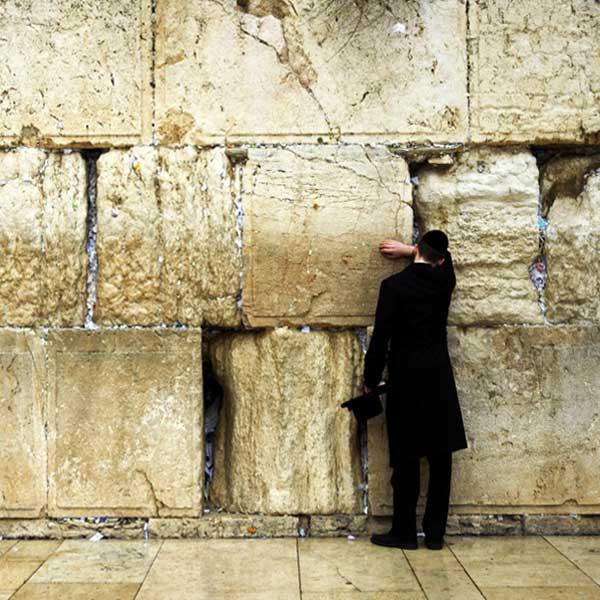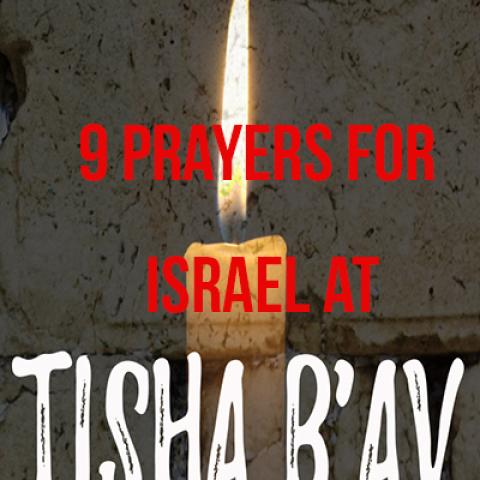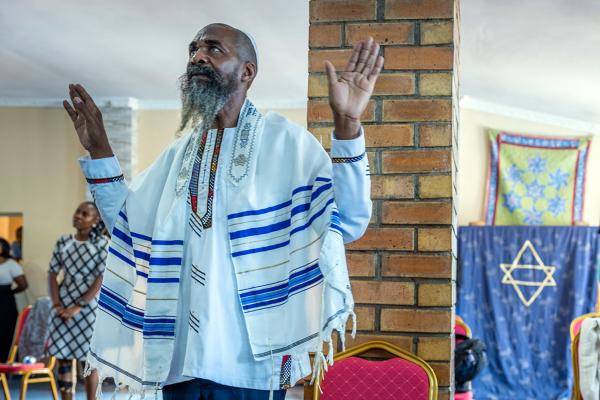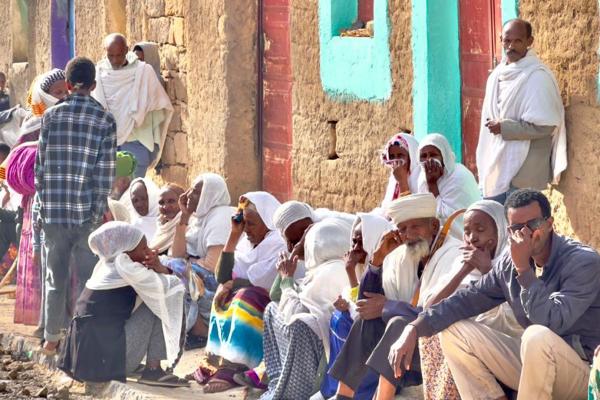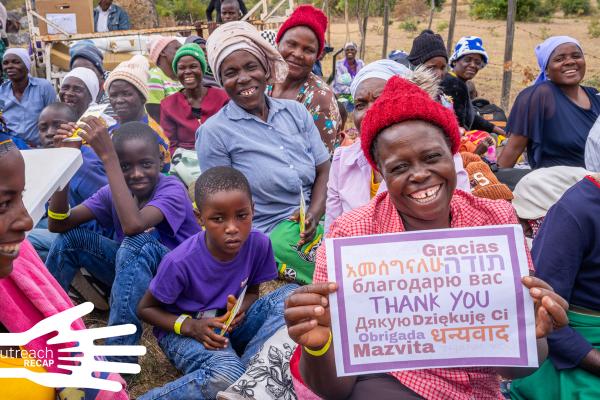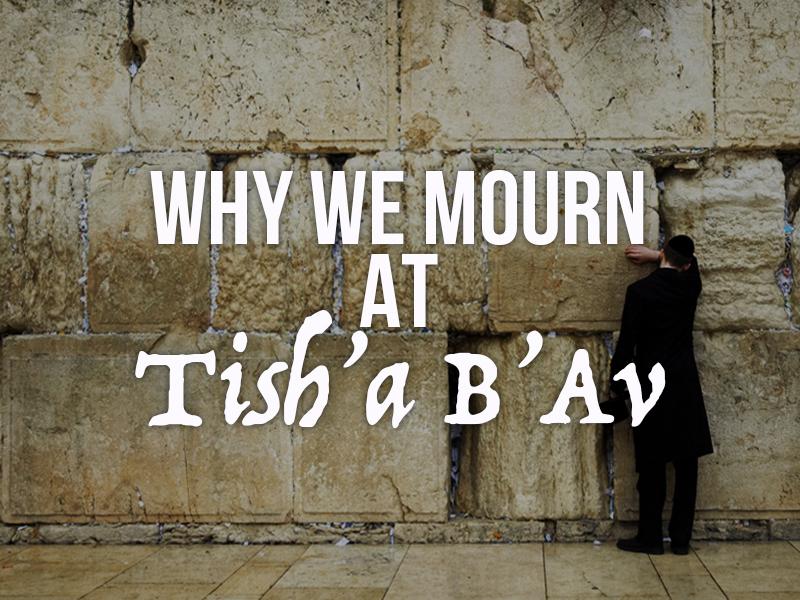
The Temple – it was the focal point of Israel and Judaism. It was where God dwelled. It was the embodiment of Jewish people’s relationships with God. It was where they brought their offerings and where their sins were covered. And it was in the location where the Lord chose to put His Name (see Deuteronomy 12, 14, 16).
Three times each year, Jewish men came from all over the Land and the world to present their harvest offerings at Firstfruits, Shavuot and Sukkot. The Temple brought the widespread people of Israel together. As the place where forgiveness and atonement occurred, the Temple brought God and man together.
And then it was gone, destroyed on the 9th day of the Hebrew month Av, in 587 B.C.E. The people of Israel were taken into captivity, or they fled in every direction to avoid it.
Later, they returned, and the second Temple was completed in 515 B.C.E. The Temple resumed its central role among the people, anchoring Jewish life in God’s presence.
And then it was gone again. In 70 C.E., the second Temple was taken from Israel. On the same date as the first destruction – the 9th day of Av – the Romans destroyed the second Temple. Later, and also on Tisha B'Av, they plowed over the rubble and covered the Temple Mount. Jewish people were expelled from Jerusalem, and they no longer had a homeland.
In 1948, the State of Israel was born, and today, it is a thriving country with a population of 9 million. But the Jewish people still have no Temple in His city. All that’s left of their holiest site is the Western Wall of the Temple Mount – the stone foundation upon which the Temple once stood. On the Temple Mount now sit the Al Aqsa mosque and the Islamic shrine known as the Dome of the Rock.
Tisha B’Av (TISH-ah Buh AV), meaning “the 9th of Av,” is a day of mourning in Israel and for Jewish people throughout the world. It’s astonishing that both Temples were destroyed on the very same calendar date more than 650 years apart. Their loss is the primary focus of Tisha B’Av’s grief. However, there’s even more to the Ninth of Av’s sadness.
Several other calamities have befallen Israel on this same date across history. First, Rabbinic tradition holds that it was on Tisha B’Av that the 12 spies returned to Israel in the wilderness, and 10 of them persuaded the people to be afraid despite God’s promise to give them the Land. Over the centuries, this same date has brought a surprising amount of persecution, expulsions and other adversities upon the Jewish people.
Tragic Events that Took Place on the 9th of Av
- 587 B.C.E. (Hebrew calendar year 3338) – The First Temple was destroyed by the Babylonians under the rule of Nebuchadnezzar
- 70 C.E. – The Second Temple was destroyed by the Romans under the leadership of Emperor Titus
- 71 C.E. – Romans plowed over the Temple Mount
- 135 C.E. – The Romans conquered Bar Kochba's last fortress, Betar, and destroyed his army. The Roman Emperor Hadrian turned Jerusalem into a Roman city
- 136 C.E. – Hadrian set up a pagan temple on the site of the Jewish Temple in Jerusalem
- 1290 C.E. – King Edward 1st of England signed an edict expelling all Jews from England
- 1492 C.E. – Jews were expelled from Spain
- 1670 C.E. – The last Jews left Vienna, following expulsion orders
- 1914 C.E. – World War I began (Germany declared war on Russia on August 1, 1914)
- 1940 C.E. – Himmler presented his plan for the "Final Solution" to the “Jewish problem”
- 1942 C.E. – Nazis began deporting Jews from the Warsaw Ghetto to death camps
On Tisha B’Av, mourning includes fasting from food and water as well as refraining from activities that represent ease and luxury. Such things as bathing/washing, using perfumes or colognes, marital relations and wearing leather shoes are among the comforts given up as an expression of grief on Tisha B’Av.
Learning Torah is also prohibited on Tisha B’Av as it brings joy. Also avoided on this day of mourning are engaging in business, sitting higher than one foot off the ground part of the day, greeting others, offering gifts, idle talking and leisure activities.
Weep with those who weep.
―Romans 12:15
As Israel mourns this woeful day, we join in the sorrow of Tisha B’Av and grasp another opportunity to pray for Jewish people throughout the world to know the hope of Yeshua (Jesus) the Messiah.
Get the "9 Prayers for Israel" Devotional
Download this free devotional and discover 9 ways you can pray for Israel and the Jewish people worldwide during these critical times.



